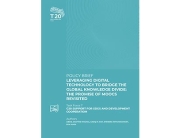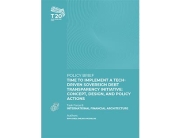Authors: Rym AYADI (CEPS, Brussels, Belgium)
Date: 26/01/2012
In the Southern Mediterranean, micro, small and medium sized enterprises (MSMEs) represent a substantial share of registered companies and employ 25% of the labour force. In Egypt, Jordan, Morocco and Tunisia, MSMEs are concentrated in trade, light manufacturing and textiles. Widespread informality, corruption, insufficiently skilled labour force and difficulties in access to finance stand as the major obstacles faced by the region’s small businesses. EU’s and Member States development assistance flows have addressed these concerns only partially: between 1995 and 2009, aid flows for MSMEs accounted for 10% of total development assistance and was split among a high number of initiatives, lacking a coherent strategy. The challenge of job creation has been highlighted by the 2011 upheavals and puts MSMEs at the centre of future economic strategies. In the context of the renewed European Neighbourhood Policy, this note focuses on Egypt, Jordan, Morocco and Tunisia and has four objectives. First, it seeks to provide with a description of MSMEs in these countries, their contribution to employment, the sectors in which they are active as well as the constraints they face. Second, it moves on to assess both EU’s and Member States’ development assistance commitments for MSME support. Third, it provides with a picture of foreign direct investments (FDI) and partnerships concluded between European and Egyptian, Jordanian, Moroccan and Tunisian SMEs. Fourth, it reviews the visa policies applying for business persons in the region. Finally, it provides with recommendations to support the development of MSMEs within the framework of the Euro-Mediterranean Partnership.





